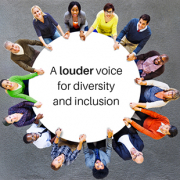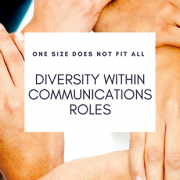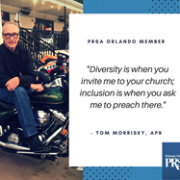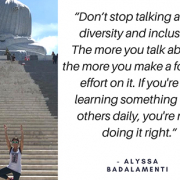PRSA Orlando Members Share Timeless Career Advice on Women’s History Month
By: Veronica Figueroa Fernandez, PRSA Orlando Diversity & Inclusion Chair
As an association with a focus on personal and professional development, and in celebration of Women’s History Month and International Women’s Day, PRSA Orlando connected with longstanding members and public relations practitioners who have achieved success in their field. Continue reading to learn how the industry has changed in the last three decades and for timeless advice from these industry veterans.
Geri Evans, APR, Fellow PRSA, President, Evans PR Group
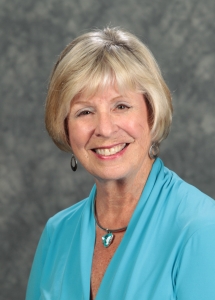
- How long have you been in the PR industry? I have been in the communication and PR Industry since 1970, first teaching a wide variety of communication courses at the college and university level, and then entering corporate communications in 1996 beginning in the hotel industry, moving into the healthcare and association fields, and then starting my own firm in 2003.
- How has the industry changed since you started? The greatest change I have seen (aside from the rapid expansion of channels PR professionals have available to them for the distribution of their message) is in the actual role of the PR professional from implementer/doer to influencer/trusted advisor. It has been exciting to watch PR professionals become the company’s conscience, the strategic communication leader, a valued person at the head table, a true influencer.
- What is the best career advice you have ever received? Doing the right thing may not always bring success, but compromising your integrity will almost always lead to failure.
- What advice would you give aspiring public relations students? Show up, be present, stay curious, learn all that you can, be nice, and show gratitude.
Danielle Hollander, APR, Chief Marketing Officer, Visit Orlando
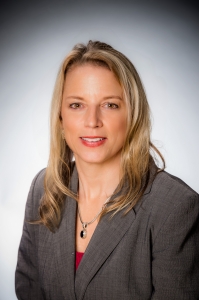
- How long have you been in the PR industry? Over 30 years
- How has the industry changed since you started? How media is defined has changed greatly as to how messages are delivered. One thing that has not changed is messaging is still the key as is relationships.
- What is the best career advice you have ever received? Take time to know all aspects of the business, clients, and how they contribute to the success of the company. Advice for working women: It’s not about achieving balance, it is about achieving integration when it comes to meshing work and life. When you are at work, you don’t stop being a mom, sister, daughter, wife, or partner. And when you are not at work you don’t stop being a professional.
- What advice would you give aspiring public relations students? Learn how to read, understand and utilize data. Always be curious.
Lorelie Johnson, APR, Senior Director, Communications – Florida, Charter Communications
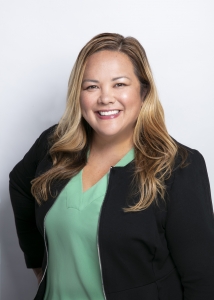
- How long have you been in the PR industry? Over 20 years
- How has the industry changed since you started? Technology has made the biggest impact along with the constant access to news and information.
- What is the best career advice you have ever received? Do the best with what you have and if you need help, don’t be afraid to ask for it.
- What advice would you give aspiring public relations students? Never underestimate the power of connecting in person or picking up the phone when building relationships.
Vicky Mixson, APR, Executive Vice President & Chief Communications Office, Wycliffe Bible Translators (and PRSA Orlando’s first woman president!)
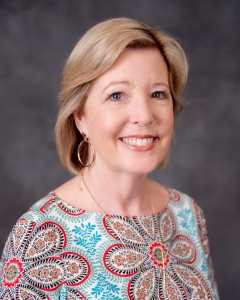
- How long have you been in the PR industry? After I graduated from the University of Florida in 1978, Roger Pynn (another former PRSA Orlando chapter president) hired me as Orlando’s first female PR account executive at McAllister-Barker Associates.
- How has the industry changed since you started? Almost everything about the industry has changed in the last four decades. The primary “tools of the trade” when I started my career included electric typewriters, telecopiers (an early version of fax machines), snail mail, business cards, and landline phones. Oh, and businesswomen wore pantyhose! Things moved at a slower pace. Local media relations efforts involved getting to know reporters who covered the types of businesses you represented and partnering with them to be a resource for their stories. Orlando had three TV network affiliates, one major newspaper, and a handful of news radio stations.
- What is the best career advice you have ever received? Early on, one of my mentors told me, “People like to work with people they like.” How true that is! We almost always choose likability over ability. Both qualities matter, but likability, combined with competence and the willingness to work hard, is the secret sauce to long-term career success.
- What advice would you give aspiring public relations students? 1) Take a genuine interest in people. Be as concerned with helping others succeed as you are in building your own brand. 2) Never stop learning — listen to podcasts, read good books, attend webinars, invite interesting people to coffee or lunch, volunteer.
Muffet Robinson, Director of Public Relations, Pathlight HOME
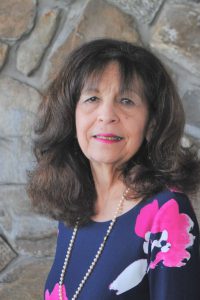
- How long have you been in the PR industry? I’ve been in the PR industry for more than 25 years, in both Baltimore and Orlando.
- How has the industry changed since you started? The PR industry was more specialized when I began, in terms of what I did and what I had to know to be successful. My specialties were community relations, public outreach and writing, and eventually media relations. I didn’t have to worry about actually designing graphics to go with materials I wrote, or about posting anything anywhere and adding any lead-in content. I had only to concern myself with how everything would fit together to become a great finished product, or what I would say to a reporter about a project or “happening.” The digital world, especially social media, changed everything! As exciting as it has been, a PR pro must now know something about everything in the PR tool kit, be able to strategize it all, and be much more generalized in their knowledge and abilities. Job specs now require candidates to be multifaceted in PR, knowing how to write and design, etc., and even to have some marketing know-how as well. And need I mention how quickly a news story goes around the world?
- What is the best career advice you have ever received? The best advice I have received is to train your successor and make your boss look good!
- What advice would you give aspiring public relations students? My advice to students: (1) Become an excellent writer, be clear, and pay attention to grammar and syntax. No matter what your focus area is, you will need to communicate it or about it. (2) Always be honest and transparent in your dealings with people. PRSA has a Code of Ethics for a reason. (3) There’s no such thing as “off the record.”
Lorri Shaban, APR, President, True North Marketing + Public Relations
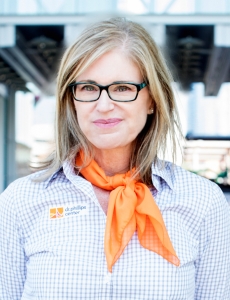
- How long have you been in the PR industry? Since my first internship at the Florida Department of Tourism, it’s been a wild, wonderful 30-year ride that I expect to continue for years to come. I’ve sat on both sides of the boardroom table, as a corporate executive and as the head of an agency (where I’m admittedly more comfortable). And I’m fortunate to have found a career that I love, one that requires equal parts strategy, creativity, and hustle.
- How has the industry changed since you started? I’m not quite sure how we accomplished so much without cell phones, laptops, and email (horse and buggy, anyone?). But what turned the industry on its head was the introduction of both the “world wide web” and later, social media. News outlets began moving their content online, and suddenly we all became intrepid explorers in a whole new world. We could research and analyze content, reporters, positions, white papers—all of which made our planning and approach much more targeted and strategic.
- What is the best career advice you have ever received? Four simple things, from two brilliant counselors and mentors, Roger Pynn and Joe Curley:
- Focus on what keeps your client awake at night.
- Analyze the big picture, not just the snapshot.
- Bring your clients solutions, not problems.
- Anticipate. Don’t wait to be asked. (My personal favorite, which one day I’ll have tattooed on my wrist.)
- What advice would you give aspiring public relations students? No matter how much experience you have, you’re not expected to know everything on day one. It takes time to learn the products, processes, people, and culture. Take advantage of that honeymoon period and ask loads of questions. Do your own research. Be inquisitive and curious and absorb as much as you can. With that foundation, you’ll start connecting dots and your creativity (and confidence) will grow. That’s when you start adding value to an organization – and become invaluable yourself. Oh, and anticipate – don’t wait to be asked!
Ann Marie Varga, APR, Manager, Internal Communications, AdventHealth
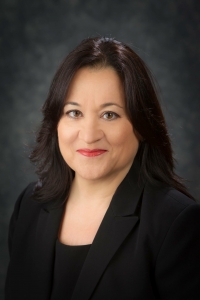
- How long have you been in the PR industry? 38 years
- How has the industry changed since you started? The field of public relations has changed significantly in nearly four decades. I started my career in the mid-‘80s before the Internet — yes, it’s true, there hasn’t always been an Internet. I actually didn’t know what public relations was when I graduated with a degree in English and Speech Communications from Rollins College. I loved to write and an on-air stint hosting an interview show on Rollins WPRK Radio sparked a love of reporting in me, which has served me well over the years as a publicist and issues manager. For my very first job, I literally “joined the circus” when I answered an ad for a writer at Circus World, a theme park then located southwest of Walt Disney World. My love of reporting and writing was put to great use and it really was the coolest job in the world! I got to play with baby elephants, Michael Jackson used to come regularly to ride our wooden rollercoaster, my office was an actual train car, and I worked with media from around the world during a time when the news was balanced and much more manageable. While it was baptism by fire as I learned on the job about public relations, issues management, and crisis communication, today’s 24/7 news cycle and citizen journalism are far more challenging. It makes getting ahead of the news impossible. This was never more evident than during my tenure at Orange County Government when I led my team through the Pulse Nightclub Tragedy. The relationships we built with colleagues during good times, served us well as professionals from every institution and organization in Central Florida who worked together for our community. I absolutely love what I do and this field is forever fascinating.
- What is the best career advice you have ever received? “Don’t sweat the small stuff” is probably the best career advice I ever received. I actually think that’s good career advice and life advice. I would say that my “sage” advice is to always treat colleagues with respect and dignity — no matter their position or their title. Always be a champion for others because life often goes full circle. An incredibly talented UCF communications student was an intern at our agency in the late ‘80s. I took a hiatus from my career path to have two kids and she continued her trajectory. She later was my boss at a statewide electric utility and then my client when she was Vice President of Communications for a global company. She remains one of my best friends to this day. I can tell you countless stories of others who have gone on to be incredibly successful — honestly far surpassing me. Mentoring others and helping them succeed is a worthy purpose and that invested effort has always come back to me when needed.
- What advice would you give aspiring public relations students? First, leave your ego at the door. Whether you’re a rookie or a veteran in your field, you will gain more through an attitude of appreciation than entitlement. There’s a huge divide between being confident and being cocky. I guarantee there will always be someone in the room who knows more than you do, no matter your age or level of experience. Second, embrace change. The field of communications has changed so much since I started my career and it will definitely continue to change. If you don’t adapt and seek out innovation, you will be left behind.




